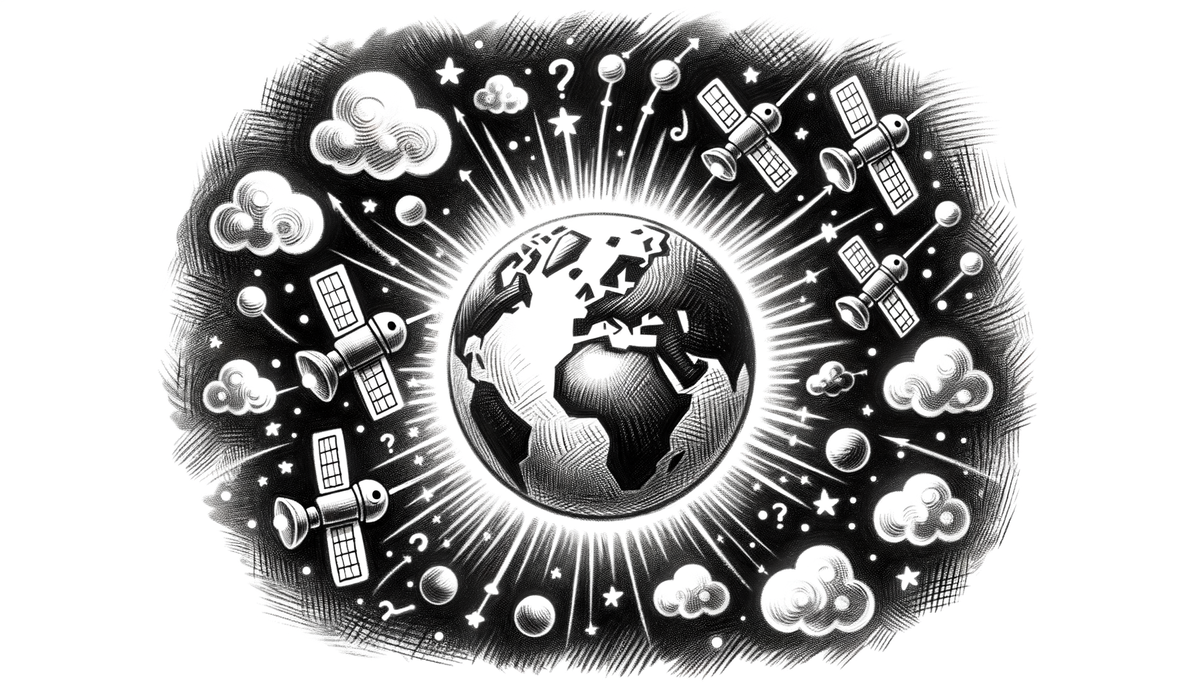Samsung's Now Brief: The Oatmeal of AI Features

Navigating the ever-evolving landscape of Artificial Intelligence and its integration across various sectors often feels like being at a crossroads of opportunity and complexity. From revolutionary backup software for Windows to AI-driven political ventures, tech investment strategies, and futuristic visions for war-torn regions, AI continues to transform and challenge notions of technology's role in society. As we dive into this multifaceted realm, let's explore the in-depth analysis of these compelling intersections.
A New Paradigm in Data Protection
The longevity of a PC's storage drive has an expiration date, a reality that necessitates robust backup strategies for data safeguarding. PC World's article on Windows backup software paints a detailed picture of the intricate dance between backup software differences and user needs.
Enter solutions like **R-Drive Image** and **Acronis True Image**. R-Drive Image stands out for its stellar performance in data protection, even extending support to popular cloud services—a nod towards the inevitability of cloud integration in personal data management. Meanwhile, Acronis offers a substantial footprint both in terms of storage and security, making it a powerhouse for those not fainthearted about installation heft. The utility of these programs often lies in features like creating boot media and streamlined scheduling options.
The free version of **EaseUS ToDo Backup** serves users uninterested in third-party cloud support, a move reminiscent of the longing for simple reliability in software applications. The larger picture gets colorful with **Arcserve ShadowProtect SPX** catering to business needs, though at the cost of financial investment. Storytelling in data protection remains a cornerstone, urging users to conscientiously choose the most compatible program for their needs, ultimately, lifting a sword against the volatile uncertainties of digital existence.
Innovative Ventures in Healthcare and AI
Transitioning to the fast-paced world of healthcare, Eli Lilly's strategic maneuvering amidst mounting diabetes drug demands demonstrates an industrial symbiosis of finance and technology. As reported in CNBC's coverage, the astronomical $27 billion influx into U.S. manufacturing echoes a resurgence of domestic economic focus. Within such expansive investments, one senses an undercurrent racing against time for regulatory approvals—a quandary not merely economic but strategic for corporate sustainability.
Parallelly, Amazon's unveiling of Alexa+ marks a defining stroke in the pursuit of a cohesive digital ecosystem. By layering generative AI with interactive user capabilities, Amazon potentially tips the scales towards a redefining moment in user experience—a reminder how the future leans into integration, not isolation.
This section isn’t solely confined to the commercial plane, as glimpses of social and political dimensions surface. As Peter Drucker once sagely noted, "The best way to predict the future is to create it," and companies like Amazon and Eli Lilly are engaging in this prophetic act, building a reality that reflects informed ambitions of user-centric design and expansive resource allocation.
Political Satire in Tech
Meanwhile, President Trump's audaciously theatrical take on geopolitical tensions via AI-generated media—namely, the "Trump Gaza" and "Gaza Riviera" projects—has unleashed a cascade of scrutiny and discourse. Altogether bizarre and provocative, the AI-produced spectacles underscore how technology can become a conduit for political narratives that rattle conventional historical and legal mores.
The fantastical portrayal of Gaza's transformation exposes deeply-rooted conflicts and tensions in international relations. The outcry from Middle Eastern nations speaks to the inadequacies and moral grayness implicit in using technology for whimsical reimaginings of sociopolitical spaces. These AI creations force a reflection on responsible AI usage; its potential for innovation is tempered as much by ethical missteps as technical prowess.
"We are not trying to replace humans, but to make human work easier, faster, and more productive. AI can free up humans to focus on higher-level tasks." – Elon Musk
While technology barrels forward, critiques of President Trump's vision emerge as a necessary brake, urging deliberation over heedless plunges into digital agitation.
Reflections on AI’s Boundaries and Horizons
Engaging with these myriad perspectives on AI, humanity's relationship with technology unfolds as a vibrant tapestry. The softness and blandness complained in Samsung's Now Brief—likened to "the oatmeal of AI"—betrays the often uninspired, yet essential early steps toward ideal innovation. It's a whispered reminder: beneath the polished veneer of cutting-edge developments lies a considerable journey—akin to H.G. Wells's allegories of unrealized futures, a brave new world that hasn’t yet found its full shape.




